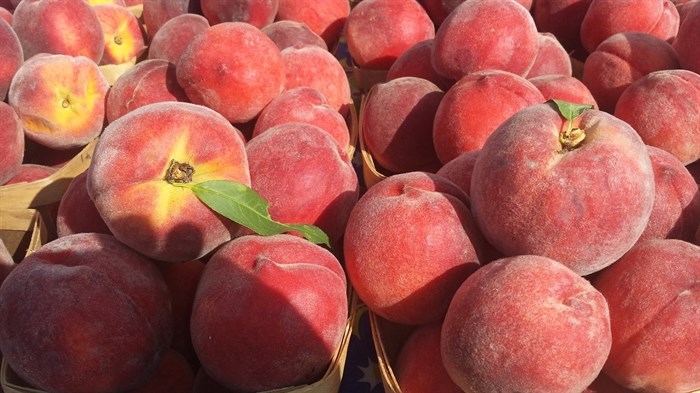Up to 80% of Okanagan peach crop wiped out by winter cold snap

The cold snap in the southern Interior earlier this winter wiped out roughly three-quarters of stone fruits like peaches, apricots, plums and nectarines.
Some growers could lose all of their crop, while most will see around 75% to 80% of their crops destroyed.
Stone fruits — like peaches, apricots, plums and nectarines — are the most sensitive to the colds so suffer the most damage.
"Although there is expected to be some crops, it's down significantly. So, optimistically, we're looking at a 75% loss, so a quarter of the crops remaining, but final detail on that will only be available at blooming time," BC Fruit Growers' Association general manager Glen Lucas told iNFOnews.ca, Feb. 14.
READ MORE: Don’t count Okanagan wine industry out just because this year’s crop is gone
"It's looking like a fairly disastrous year for growers. Some are wiped out and then others will have a good crop, but on average, it's pretty much wiped out for cherries, and it's worse for peaches, apricots, plums and nectarines."
The loses won't be confirmed until the the trees start blooming this spring, but orchardists may have most of their crop.
"We're probably looking at 90% loss and for apricots probably 100%," Lucas said.
Avi Gill, co-owner of the Farming Karma Fruit Company and BC Fruit Grower's Association board member, is one of many growers who's expecting major losses.
"There's going to be less fruit on the trees to begin with and, of course, the summers we've been seeing and the extreme heat events, those can destroy whatever's left on there," Gill said.
"Farmers are having a hard time navigating the challenges of this climate crisis we're facing. It's hard to tell until the blossoms, but I've been hearing we could get around 80% damage."
Farmers often deal with sustainability issues when it comes to revenue, but it seems like these past few years have been especially difficult.
READ MORE: January deep freeze devastated BC Southern Interior cherry crop
"I feel like every year there's a new challenge and whether it's extreme heat events or extreme winters or snaps of cold, even a little bit of what occurred has had detrimental damage to the crops," Gill said.
"Farming is difficult in terms of sustainability, so if we take an 80% hit, any business would falter in that situation."
According to data obtained from the BC Fruit Growers' Association, in 2021 farmers across the province made a total of $78.59 million. With this year's damage, farmers across the province could lose up to $20 million from the damages caused by this winter's cold snap, and the losses will be mostly in the Okanagan valley.
This type of damage is unprecedented in recent memory.
"People talk about 1948 as being the last time something like this happened," he says. "I've been around 26 years and I can't remember anything like this happening."
For some farmers, this could mark the end of their business. Gill said for smaller farms especially, this kind of damage and revenue loss is quite problematic.
"I'm not sure if we'll get support from the government, but as of now they are listening to our concerns, we seem to be on their radar, but we are hoping that there is some support that comes our way especially if we see business go under. Taking an 80% hit to your revenue is not easy to handle," he said.
Lucas said there are programs put in place to help farmers through these types of unpredictable weather events, but with climate change making these events more common, the programs aren't always enough.
"Production insurance is based on yield or production loss, and then there's revenue stabilization programs. Both production insurance and the revenue stabilization program are based on history, but our issue is that we've had climate problems for the last few years," he said.
"It's been a series of years where we've had subpar production so the insurance is an average of those below-average years, so we're under-insured essentially because of climate change."
"We're asking the government to do a climate adjustment on those years because the programs are planned for a once in five or ten-year impact and not as large impact as what we've had; what we're seeing is a need for these programs five years in a row which, in turn, reduces the coverage."
While the damage to the crops is not predicted to be permanent, the damage this will cause to farmers' businesses could well be..
The BC Fruit Growers' Association represents fruit growers through lobbying, and provides resources and services to help fruit growers across the province.
To contact a reporter for this story, email Gabrielle Adams or call (438) 830-1211 or email the editor. You can also submit photos, videos or news tips to the newsroom and be entered to win a monthly prize draw.
We welcome your comments and opinions on our stories but play nice. We won't censor or delete comments unless they contain off-topic statements or links, unnecessary vulgarity, false facts, spam or obviously fake profiles. If you have any concerns about what you see in comments, email the editor in the link above. SUBSCRIBE to our awesome newsletter here.


